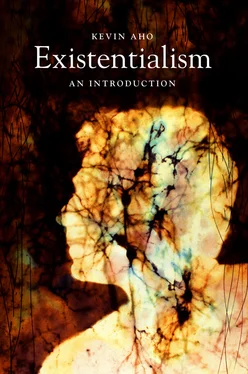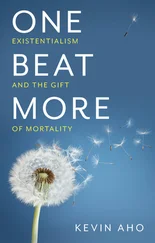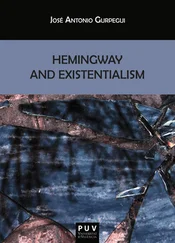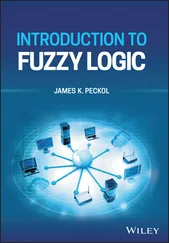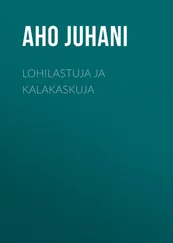Kevin Aho - Existentialism - An Introduction
Здесь есть возможность читать онлайн «Kevin Aho - Existentialism - An Introduction» весь текст электронной книги совершенно бесплатно (целиком полную версию без сокращений). В некоторых случаях можно слушать аудио, скачать через торрент в формате fb2 и присутствует краткое содержание. Год выпуска: 2013, ISBN: 2013, Издательство: Polity, Жанр: Философия, на английском языке. Описание произведения, (предисловие) а так же отзывы посетителей доступны на портале библиотеки ЛибКат.
- Название:Existentialism: An Introduction
- Автор:
- Издательство:Polity
- Жанр:
- Год:2013
- ISBN:978-0745651422
- Рейтинг книги:3 / 5. Голосов: 1
-
Избранное:Добавить в избранное
- Отзывы:
-
Ваша оценка:
- 60
- 1
- 2
- 3
- 4
- 5
Existentialism: An Introduction: краткое содержание, описание и аннотация
Предлагаем к чтению аннотацию, описание, краткое содержание или предисловие (зависит от того, что написал сам автор книги «Existentialism: An Introduction»). Если вы не нашли необходимую информацию о книге — напишите в комментариях, мы постараемся отыскать её.
Existentialism: An Introduction
Existentialism: An Introduction — читать онлайн бесплатно полную книгу (весь текст) целиком
Ниже представлен текст книги, разбитый по страницам. Система сохранения места последней прочитанной страницы, позволяет с удобством читать онлайн бесплатно книгу «Existentialism: An Introduction», без необходимости каждый раз заново искать на чём Вы остановились. Поставьте закладку, и сможете в любой момент перейти на страницу, на которой закончили чтение.
Интервал:
Закладка:
Unfortunately, as the alleged father of existentialism Søren Kierkegaard (1813–1855) would make clear, the aim of bringing together the conflicting domains of faith and reason was absurd. How, for instance, can one make rational sense of God's command to Abraham that he kill his own son, or the senseless suffering of Job, or the intrinsic sinfulness of human beings, or the Incarnation of the God-man? “The problem,” as Kierkegaard writes, “is not to understand Christianity, but to understand that it cannot be understood” (1959, 146). Indeed, Kierkegaard can be viewed as a philosopher who attempts to resuscitate the Hebraic experience of vulnerability and dread and of transcendence as passionate commitment, by articulating the qualitative difference between the impersonal and objective truths of reason, on the one hand, and what Kierkegaard calls “the highest truth available for an existing individual,” on the other. These latter truths are subjective and are fundamentally uncertain and inaccessible to logic or reason. Subjective truths cannot be thought; they can only be felt with inward intensity in the course of living one's life.
We will explore how Kierkegaard engages the tension between ‘subjective’ and ‘objective’ truth in chapter 2, but at this point we want to make clear that at least one thing remained consistent in the historical transition from Hellenism to Christendom. This was the belief that human beings belong to and are dependent upon a divine, value-filled cosmos that provided an enduring moral order, a ‘great chain of being’ that determined the proper function and place of things and how humans ought to act. On this view, the people of Greco-Christian Europe inhabited an enchanted world filled with deities and supernatural meaning. This conception of a divine cosmos provided ready-made answers to existential questions such as ‘ Who am I? ’ ‘ How should I live? ’ and ‘ What is the meaning of my life? ’ The ability to answer these questions became increasingly difficult beginning in the sixteenth and seventeenth centuries as the pre-modern orientation began to break down in the wake of a new Enlightenment worldview, and early modern philosophers such as Galileo Galilei (1564–1642), René Descartes (1596–1650), and Isaac Newton (1643–1727) began to lay the scientific groundwork that challenged the inherent divinity and meaningfulness of the world.
The emergence of the modern worldview
Although admittedly simplistic, it is generally agreed that there were three key events that contributed to the historical formation of the modern worldview (e.g., C. Taylor 1989, 2003; Guignon 2004a). The first and arguably most significant was the advent of modern science. From the perspective of the new science, the cosmos was no longer understood from a teleological view, as a moral order of absolute ends, but as a valueless aggregate of quantifiable objects colliding with one another. The cosmos becomes, in the words of German sociologist Max Weber (1864–1920), “disenchanted,” a vast, all-encompassing machine that operates on the basis of fixed, law-like formulas. The vision of the scientist, on this account, is that of a disinterested observer who impartially collects data and formulates theories. Crucial to this method is the ability to abstract out the subjective qualities that we give to things — such as beauty, meaning, purpose, and value — and focus only on the objective qualities of things, that is, those qualities that can be measured or quantified such as mass, velocity, and location in a spatial-temporal coordinate system. With this view, anything in the natural world can now be objectified, examined from a perspective of cool detachment as an object to be manipulated. This is an explicitly humanistic view insofar as it revolves around the human being as the knowing ‘subject’ who masters and controls ‘objects.’ Weber summed up the aims of the new science by claiming, “There are [now] no more mysterious incalculable forces that come into play, but rather that one can, in principle, master all things by calculation . This means that the world becomes disenchanted ” (1948, 139, my emphasis). Of course, on this view, human beings too can be regarded as quantifiable objects to be manipulated for specific purposes. And human behavior is no longer explained in terms of incalculable meanings or divine ends but in instrumental terms of causality, where every action and event is necessarily determined by a set of antecedent conditions.
Many philosophers of the time regarded the scientific revolution positively. Not only did it liberate human beings from the superstitions and oppressive dogmas of the church; it also provided techniques for increasing our mastery over the natural world. But some philosophers expressed reservation. One of the earliest and most powerful expressions was provided by the proto-existentialist Blaise Pascal (1623–1662), who, although a brilliant physicist and mathematician in his own right, experienced this new mechanistic and de-animated world not with optimism, but with dread. In his Pensées , he offered a powerful description of a world stripped of any trace of divinity or overarching meaning:
This is what I see and what troubles me. I look around in every direction and all I see is darkness. Nature has nothing to offer me that does not give rise to doubt and anxiety. If I saw no sign there of a Divinity I should decide on a negative solution: if I saw signs of a Creator everywhere I should peacefully settle down in the faith. But, seeing too much to deny and not enough to affirm, I am in a pitiful state. … The eternal silence of these infinite spaces fills me with dread. (1995, 201, 429)
With Pascal we see the Janus face of modern science. On one hand, it frees human beings from the prejudices and superstitions of religion. On the other hand, this freedom means we are now abandoned and forlorn in a cold and meaningless universe.
A second important development in the formation of the modern worldview was the emergence of a new form of Christianity, Protestantism, that reconfigured the self by privileging the inner states of the soul. Although the emphasis on subjective inwardness is present in the Western tradition as early as Augustine's Confessions (397–398 ad), the cultural shift to religious individualism was officially inaugurated with Martin Luther's (1483–1546) famous protest against the Catholic Church in Wittenberg, Germany, in 1517. Luther rejected the Catholic notion of salvation by means of sacraments or rituals, buying indulgences, or by doing ‘good works,’ and focused exclusively on the moral content of one's intentions — one's inner feelings, desires, and thoughts. The Protestant turn inward revealed a sharp distinction between the ‘inner’ self that was genuine and true and the transient and corruptible ‘outer’ self that is engaged in superficial worldly affairs. This shift also made it possible to disown one's actions in the world, seeing them as separate and distinct from one's real self because it is one's intentions, not one's actions, that are essential to who one is. In this way, Protestantism fortified the Christian attitude of contemptus mundi or ‘contempt for the world’ that contributed to a growing sense that we do not belong to it (Guignon 2004a, 30). And, like the new science, this contempt played a key role in the demystification of nature, regarding it as a domain of hostile objects to be mastered through self-discipline and an industrious work ethic.
The third major development in the formation of the modern worldview was a new picture of society, where human beings no longer understood themselves in terms of their social roles, relationships, and functions that were preordained by the divine order of things. Society, rather, came to be viewed as something artificial, an aggregate of disconnected individuals that was held together by instrumental social contracts and monetary exchanges. Public life begins to emerge as something unnatural, where one is compelled to adopt a number of fake personae or social ‘masks’ that are foreign to one's real self (Guignon 2004a, 33–36). As a result, an older way of being that was rooted in close-knit feudal societies, where one's identity was shaped by a deep sense of belonging to one's place and to one's role within a community, gave way to an increasingly rationalistic, impersonal, and alienating social order, the birth of the centralized state. This new version of society reduced human beings to calculable resources or commodities that, in turn, required the creation of a class of technical bureaucrats and administrators to manage and control these resources in factories, schools, hospitals, and office buildings. The nightmarish experience of having one's public life monitored and regulated by a cadre of anonymous bureaucrats heightened the modern experience of alienation and confusion and became a central theme in existentialist literature, notably in the writings of Franz Kafka (1883–1924). In his posthumously published novel The Castle (1926), for instance, the main character, known only as ‘K,’ arrives at a village in the winter and spends his time desperately trying to understand and communicate with the inaccessible bureaucrats of the castle who have control over all aspects of life in the village. The castle is a symbol of bureaucratic authority that, through endless paperwork, permits, and administrative procedures, stifles any expression of individual freedom and undermines the possibility for genuine human interaction, leaving ‘K’ feeling forlorn and isolated. The castle destroys what Kafka sees as the most basic of human needs, which, in the words of Max Brod, was “the need to be rooted in a home and calling, and to become a member of a community” (cited in May 1950, 7).
Читать дальшеИнтервал:
Закладка:
Похожие книги на «Existentialism: An Introduction»
Представляем Вашему вниманию похожие книги на «Existentialism: An Introduction» списком для выбора. Мы отобрали схожую по названию и смыслу литературу в надежде предоставить читателям больше вариантов отыскать новые, интересные, ещё непрочитанные произведения.
Обсуждение, отзывы о книге «Existentialism: An Introduction» и просто собственные мнения читателей. Оставьте ваши комментарии, напишите, что Вы думаете о произведении, его смысле или главных героях. Укажите что конкретно понравилось, а что нет, и почему Вы так считаете.
